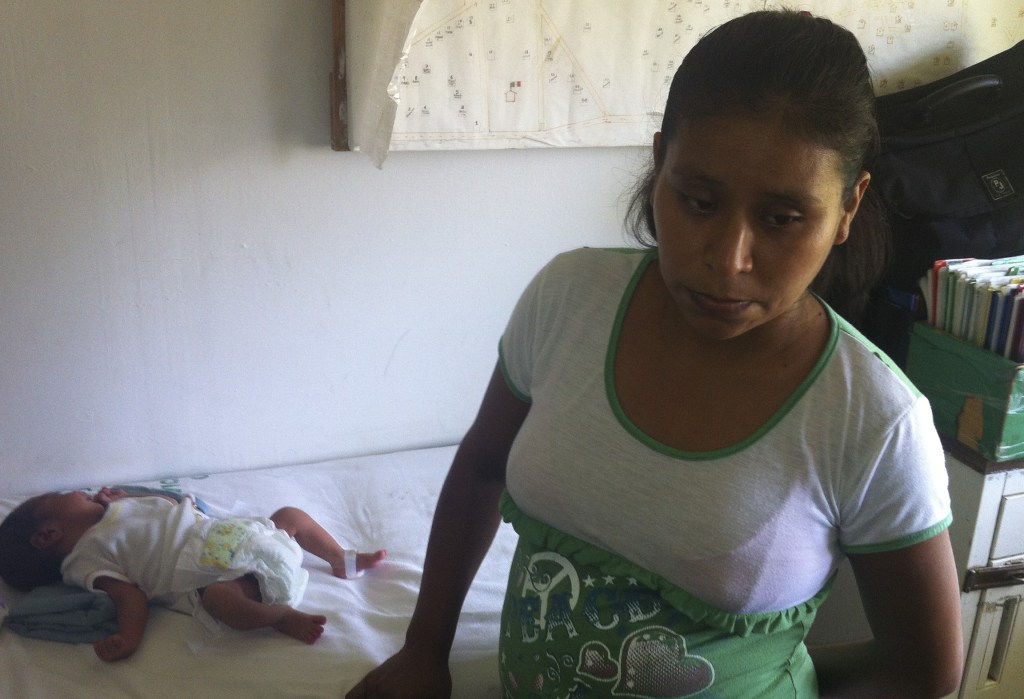MEXICO CITY — An indigenous woman squats in pain after giving birth, her newborn still bound by the umbilical cord and lying on the ground. It’s a photograph that horrified Mexicans because of where it took place: the lawn outside a medical clinic where the woman had been denied help, and it struck a nerve in a country where inequity is still pervasive.
The government of the southern state of Oaxaca announced Wednesday that it has suspended the health center’s director, Dr. Adrian Cruz, while officials conduct state and federal investigations into the Oct. 2 incident.
The mother, Irma Lopez, 29, told The Associated Press that she and her husband were turned away from the health center by a nurse who said she was only eight months pregnant and “still not ready” to deliver.
The nurse told her to go outside and walk, and said a doctor could check her in the morning, Lopez said. But an hour and a half later, her water broke, and Lopez gave birth to a son, her third child, while grabbing the wall of a house next to the clinic.
“I didn’t want to deliver like this. It was so ugly and with so much pain,” said Lopez, who is of Mazatec ethnicity. She said she was alone for the birth because her husband was trying to persuade the nurse to call for help.
A witness took the photo and gave it to a news reporter. It ran in several national newspapers, including the full front page of a tabloid, and was widely circulated on the Internet.
The case illustrated the shortcomings of maternal care in Mexico, where hundreds of women still die during or right after pregnancy. It also pointed to the persistent discrimination against Mexico’s indigenous people.
“The photo is giving visibility to a wider structural problem that occurs within indigenous communities: Women are not receiving proper care. They are not being offered quality health services, not even a humane treatment,” said Mayra Morales, Oaxaca’s representative for the national Network for Sexual and Reproductive Rights.
The federal Health Department said this week that it has sent staff to investigate what happened at the Rural Health Center of the village of Jalapa de Diaz. The National Human Rights Commission also began an investigation after seeing news reports.
Nearly one in five women in the state of Oaxaca gave birth in a place that is not a hospital or a clinic in 2011, according to Mexico’s census. Health officials have urged women to go to clinics to deliver their babies, but many women say the operating hours of the rural centers are limited and staffs are small.
A receptionist at the Rural Health Center told the AP that the doctor in charge was not available to comment about the case. Lopez was taken in by the clinic after giving birth and discharged the same day with prescriptions for medications and products that cost her about $30, she said. Health officials say she and her baby were in good health.
She said that poverty-stricken villagers are used to being forgotten by Mexico’s health care system and left to fend for themselves.
“I am naming him Salvador,” said Lopez, a name that means “Savior” in English. “He really saved himself.”
Send questions/comments to the editors.



Success. Please wait for the page to reload. If the page does not reload within 5 seconds, please refresh the page.
Enter your email and password to access comments.
Hi, to comment on stories you must . This profile is in addition to your subscription and website login.
Already have a commenting profile? .
Invalid username/password.
Please check your email to confirm and complete your registration.
Only subscribers are eligible to post comments. Please subscribe or login first for digital access. Here’s why.
Use the form below to reset your password. When you've submitted your account email, we will send an email with a reset code.